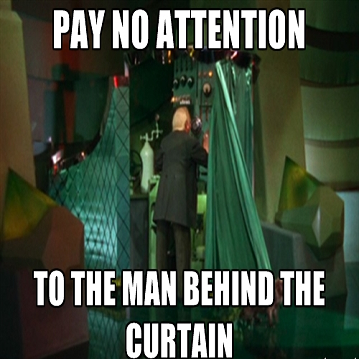The end of QE has a lot of people confused. With inflation solidly below the Fed’s expectations and the economy still muddling along it looks like $4.5T worth of “money printing” just didn’t do all that much. Central Banks appear to have acted aggressively, but their actions don’t appear to have resulted in all that much.
In his latest piece on Bloomberg View Noah Smith asks a series of smart questions about what this could all mean:
“Most monetary economists — and most people who watch the news — think that if the Federal Reserve pushes r^nominal down, by printing money and buying bonds, that inflation goes up and r^real goes down by even more. But what if Fed money-printing can’t affect real interest rates for more than a short while? What if real interest rates are ultimately determined not by anything the Fed does, but by the natural forces of supply and demand?”
Of course, there are also lots of economists (like Paul Krugman and Scott Sumner) who would respond by saying that that’s just nonsense. In essence, they would argue that it’s not that the Fed can’t control the rate of inflation, but that the Fed hasn’t done the right stuff. Basically, they haven’t tried hard enough. But what if they’re wrong also? What if their continued faith in monetary policy, despite already aggressive action, is also wrong? Then what?
This takes us into an interesting discussion. What if Noah is asking the exact right questions about the efficacy of monetary policy and the Fed’s control? What if the Fed really isn’t this omnipotent entity that can steer the economy around by “printing money” and altering expectations? What if the economic models, which center mostly around Central Banks steering the economy, are partially wrong? Well, then all the economic models have to change and the recent 40 year obsession with laissez-faire central bank based policies becomes a much different field of debate.
More interestingly, what if the Central Bank is the wrong entity to be relying on for policy at all times? What if all this asset swapping, interest rate tinkering and expectations altering is just blunt policy implementation that just isn’t as precise as we think? Or, what if there is another entity that prints massive quantities of financial assets that is actually far more powerful than the Central Bank? What if the US Treasury is actually the entity that wields the real power over policy? Well, in order to even begin exploring that reality you have to be willing to get over a good deal of political bias, myths about government spending, misconceptions about what really amounts to “socialism” and economic modeling that has centered around the Central Bank for so long. And I don’t see that happening any time soon. And so the Central Bank obsession and economic confusion is likely to continue. But at least some smart people are starting to ask the right questions….
Mr. Roche is the Founder and Chief Investment Officer of Discipline Funds.Discipline Funds is a low fee financial advisory firm with a focus on helping people be more disciplined with their finances.
He is also the author of Pragmatic Capitalism: What Every Investor Needs to Understand About Money and Finance, Understanding the Modern Monetary System and Understanding Modern Portfolio Construction.


